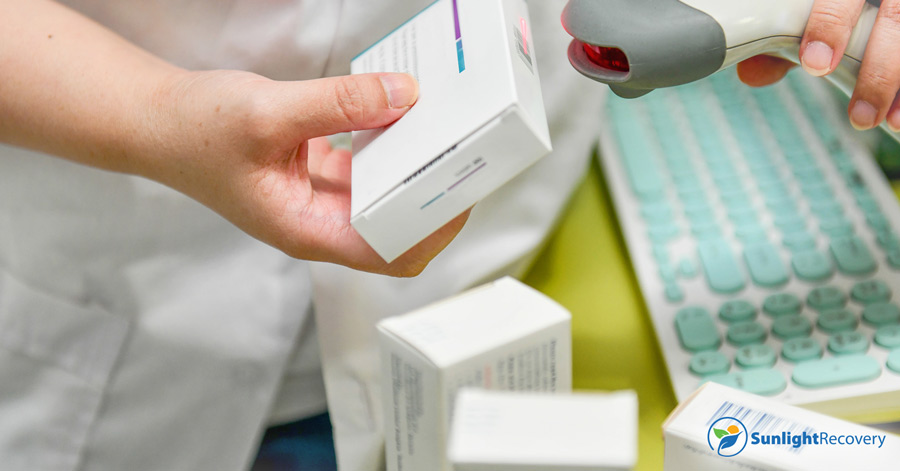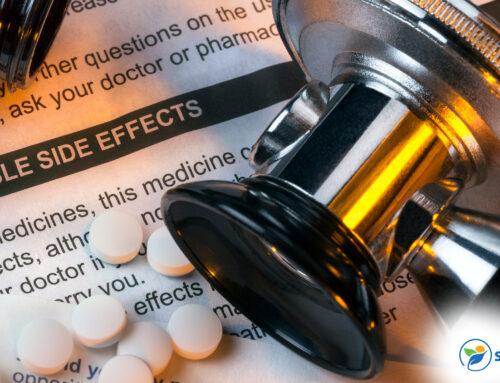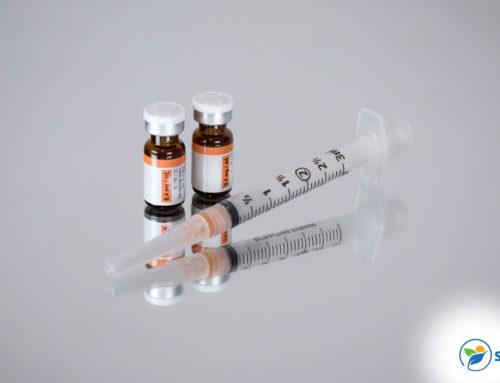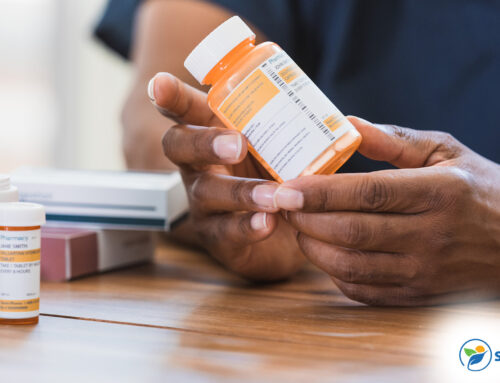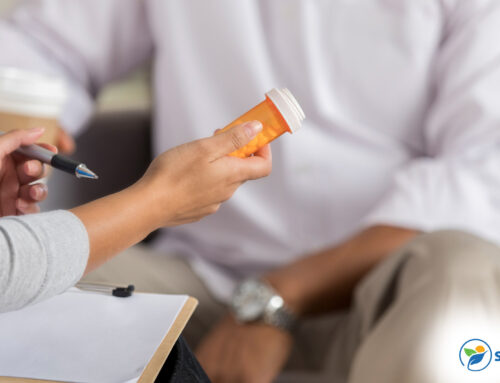Prescription medications can create a safety hazard. In some cases, it could even be illegal to save old, expired drugs. Federal, state and local laws govern the safe storage and disposal of prescription drugs, so it’s important to check prescription expiration laws in your area before tossing drugs in the trash. You may also want to clean out your drawers and cabinets to get rid of old prescriptions.
Data from the National Center for Drug Abuse Statistics highlights the scope of the prescription drug problem. The agency estimates that 6% of American teens and adults abuse prescription medications every year, and 12% of these individuals develop drug addiction.
As a result of this public health issue, you might have questions like, “Is it illegal to give away pills?” Or, “Is it illegal to remove labels from prescriptions?” This guide provides answers about the safe, legal handling of medications you no longer need.
Is It Illegal to Give Away Pills?
Federal and state laws make it illegal to give away or distribute prescription medications that fall into the Drug Enforcement Administration’s (DEA) schedule of controlled substances. Accepting money in exchange for pills can result in substantial fines as well as possible jail time depending on the type of drug, the amount of medication and other factors.
Examples of prescription medications considered controlled substances include stimulants like Ritalin and Adderall as well as pain medications such as hydrocodone, codeine, morphine, oxycodone and methadone. Anxiety medications like Xanax and Valium are also federally controlled substances that cannot be legally distributed or given away.
How Long Can You Legally Take a Prescription?
You can legally take your medication as long as you have a valid prescription from your doctor. Prescription expiration law does not restrict the amount of time that medical treatment can last.
However, you may only be able to fill a prescription for 6 to 12 months after it’s written by your health care provider. If you wait longer than this interval, you’ll be unable to get the medication without a new, updated prescription.
Is It OK to Flush Pills You Don’t Need Down the Toilet?
In most cases, you shouldn’t flush your pills down the toilet. The best way to get rid of old medication is to take it to an official medication disposal site. For example, you can check with your local police department to find out if it accepts expired medication for disposal. The DEA also has a searchable database of official nationwide drug disposal sites.
When you don’t have a medication disposal site in your area, the Food and Drug Administration recommends that you take these steps:
- Check the package for specific disposal instructions. Some drug labels have information about how to safely throw away the medication.
- Take the medication out of the container.
- Remove all personal information from the prescription label or take off the label completely. Is it illegal to remove labels from prescriptions? Only when you’re still storing the medication at your home. Once you no longer need the drugs, you can take off the label or obscure your information to protect your identity. Then you can safely put the bottle in your regular trash.
- Put the leftover medication in a plastic bag or another disposal container with a seal.
- Throw the bag away along with an inedible substance like old coffee grounds, kitty litter or dirt.
However, certain dangerous drugs should be flushed down the toilet and not disposed of in the trash. The FDA maintains a list of prescription medications you should flush when you stop taking them.
Can You Stop Taking an Antibiotic When You Feel Better?
You shouldn’t stop taking an antibiotic even if you feel better. The Mayo Clinic reports that you should complete the entire course prescribed by your doctor. Otherwise, you can get sick again later, which may require stronger treatment. In fact, discontinuing antibiotics too early contributes to the development of treatment-resistant bacteria that don’t respond as well to prescription drugs. If you aren’t sure when to stop taking your antibiotics, ask the doctor who prescribed you the medication.
How Should You Store Your Prescriptions at Home?
According to Medline Plus, you should store your medications in a cool, dry place like the kitchen medicine cabinet. The location should be away from moisture, light, heat and air. The bathroom cabinet isn’t the best place for your prescription drugs since it tends to be warm and humid. Always keep medications in their original containers. Get in the habit of putting away drugs right after you use them. Leaving them out on the counter creates a security hazard.
If you’re prescribed controlled substances by your doctor, you may want to keep these drugs locked in a safe. Failure to store these substances securely can result in arrest and criminal charges depending on the laws of your state. Having unlocked medications also presents a safety hazard if you live with children or pets. The CDC says that 2 million individuals experience drug-related injury every year in the U.S. In addition, the Substance Abuse and Mental Health Services Administration reports that nearly 47% of poison control visits related to prescription drugs affect children ages 6 and younger.
While it’s unlikely that you’ll be charged with a crime for storing prescriptions improperly at home, you should stick to the letter of the law to protect yourself. It may become important if you’re investigated during custody proceedings or prescribed controlled substances such as pain medications, for example.
Help Is Available From Sunlight Recovery
If you or someone you love struggles with prescription drug abuse, Sunlight Recovery can help you see the light. Call us today to find out about treatment for substance use disorder and mental illness. We have counselors standing by around the clock to help you take the first step toward a healthy sober lifestyle.


